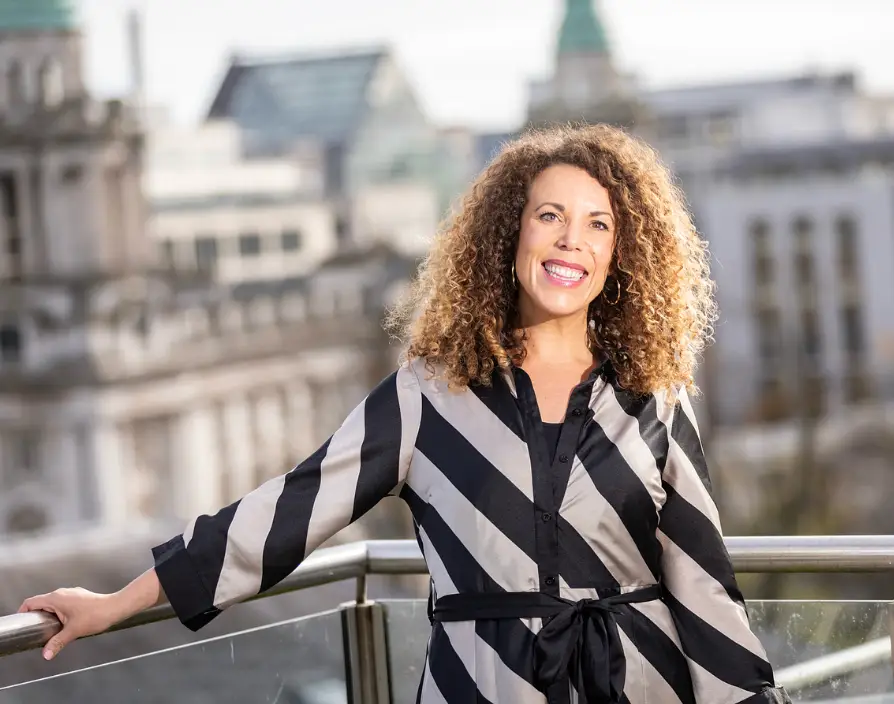It’s no secret that the process of raising funding for a business can be particularly difficult for female founders for a number of reasons. Research last year suggested that although more female-founded businesses are getting funded, male-led businesses are seven times more likely to receive funding, obtaining 70% of total funds and capital.
Louise Doyle, CEO and co-founder of needi.co.uk explores why investing in women is the smart choice and how the process of female founders acquiring funding is developing.
Is there a gendered lens in funding?
As a female founder who has gained funding myself, I can agree with the many female founders who have reported that almost every element of the funding journey feels gendered.
Research highlights a clear bias in how investors question female versus male founders during pitch sessions, impacting funding outcomes. Female founders are more likely to face cautious questions, focused on risks and potential losses, such as “What are the potential downsides of your business model?”. In contrast, male founders are more likely to be asked positive and promotion-based questions based on their growth and achievements. The Harvard Business Review found that 67% of the questions posed to male entrepreneurs were promotion-oriented, while 66% of those posed to female entrepreneurs were prevention-oriented.
Addressing this issue involves strategies such as standardising investor questions to ensure consistency across genders and improving diversity among investment teams to ensure more impartial decision-making processes. Additionally, educating investors on their biases can play a significant role in closing the gender funding gap for the generations of female founders to come.
The benefit of investing in female founders
The positive news is that women-led businesses actually generate a higher return on revenue from the initial investment in comparison to male co-founder counterparts. Evidence suggests investing in a female-led business is a wise move for a number of reasons; 34 per cent of male entrepreneurs have seen a business go under compared with 23 per cent of female founders and women entrepreneurs bring in 20 per cent more revenue with 50 per cent less money invested.
Female entrepreneurs also tend to create more inclusive and diverse workplaces. For example, studies indicate that women-led companies are 1.5 times more likely to prioritise diversity in hiring and retaining employees longer, contributing to a more cohesive and innovative corporate culture. For example, at needi, we have generated over £1 million for businesses that are often female and minority-owned, filling the pockets of independently owned businesses. We couldn’t have done that without investment particularly from BBB, Clarendon Fund Managers, Techstart Ventures and Dean Forbes who are breaking the bias. –
These statistics underline gender biases in investment practices and highlight the need for policy changes to address funding inequalities and unlock the economic potential of female entrepreneurs.
Turning challenges into opportunities
While the funding process for women may be challenging, it also presents an opportunity to reshape how we think about risk and innovation.
Although female founders are often questioned more rigorously about the potential setbacks, this can be used as an advantage to demonstrate the challenges and the solutions to them. By framing answers with data-backed strategies for overcoming challenges, female founders can show that they are not just thinking about risks but are actively planning for growth in the face of uncertainty. This ability to pivot and adapt shows the resilience of its leaders and can be turned into a compelling narrative for investors.
Interestingly, Generation Z female founders are attracting more external capital than any other age group and are closing the gender gap. The growing trend of Generation Z female founders seeking capital reflects a wider societal shift. Younger generations are more aware of the importance of diversity and equality, and as these founders take the lead, they are creating new spaces for collaboration and innovation that benefit all entrepreneurs. This transformation in the startup world is an opportunity to rewrite outdated perceptions about female leadership and business risk.
Equality in funding benefits the economy
The evidence is clear: investing in women is not just good for business; it’s essential for economic growth. By closing the gender funding gap, we can unlock billions of pounds in untapped potential and create a more diverse, dynamic economy. Equality in funding enables women to scale businesses that create jobs, promote innovation, enrich communities and champion diversity. This leads to a more inclusive economy where wealth is distributed more fairly, benefiting society as a whole. For investors, this means increased returns on investment and the opportunity to support companies that will drive long-term, sustainable growth.
The future is bright for female entrepreneurs, but to fully realise this potential, we must address the biases that continue to skew the funding landscape. By supporting women-led businesses, not only are we making smart financial decisions, but we’re also contributing to a more inclusive, diverse, and resilient economy. The question is no longer whether we can afford to invest in women-led businesses – it’s whether we can afford not to.
About Louise Doyle, Founder & CEO of https://needi.co.uk/
Louise Doyle is the visionary co-founder and CEO of Needi, a corporate gifting service that uses AI-powered gift-matching technology to connect businesses with the perfect sustainable gifts while supporting local independent businesses.


